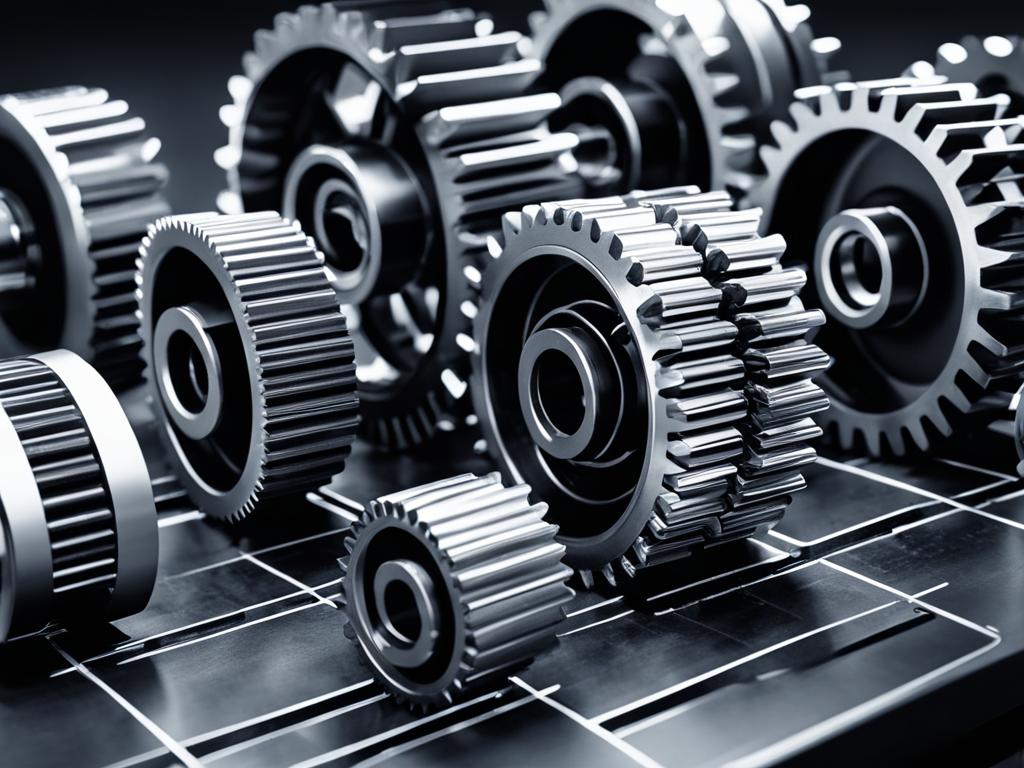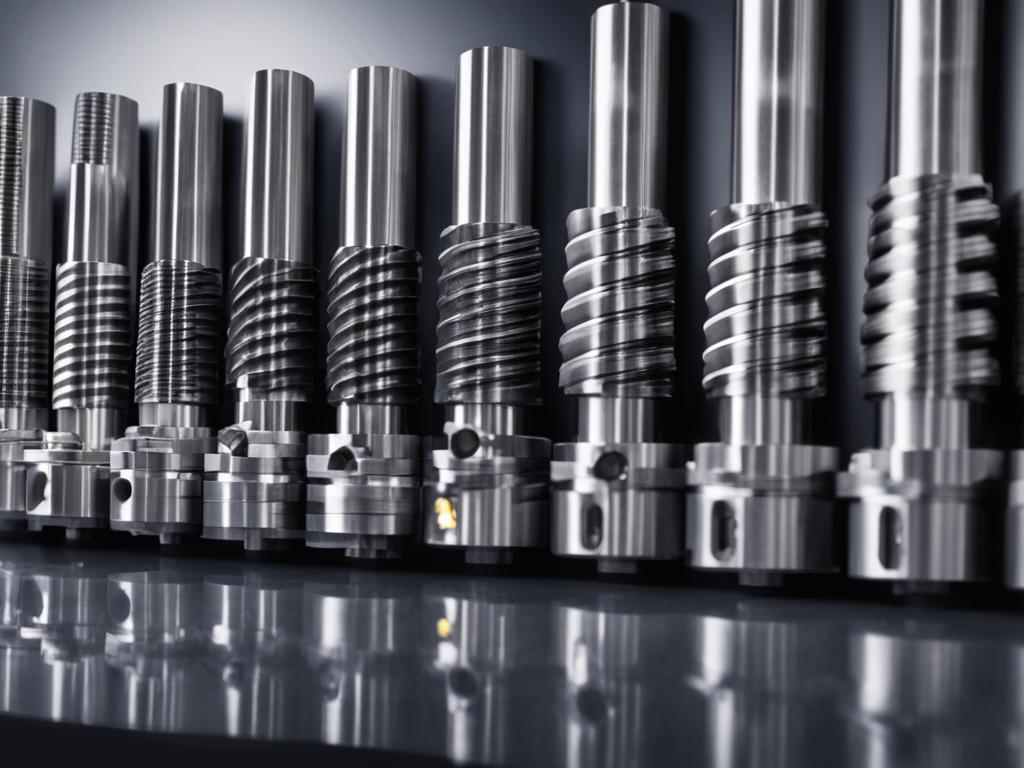CNC machining motor vehicle parts is a precision manufacturing process where pre-programmed computer software dictates the movement of factory tools and machinery.
Introduction to Precision Grinding in Motor Vehicle Part Production
In the realm of manufacturing, precision is a paramount criterion, especially in the automotive industry. Among the various techniques employed, precision grinding stands out as a cornerstone for producing high-quality motor vehicle parts. This process not only ensures the accuracy and consistency of parts but also significantly influences their performance and durability. In this comprehensive exploration, we delve into how precision grinding reshapes motor vehicle part production, enhancing everything from individual components to the entire vehicle’s operation.

Enhanced Accuracy and Consistency
Precision grinding operates on the principle of removing minute amounts of material from workpieces, resulting in a high degree of dimensional accuracy and a smooth surface finish. This is essential in the automotive industry, where even the slightest deviation can lead to significant issues in the assembly or performance of a vehicle. For instance, in the production of gear parts or engine components, precision grinding ensures that these parts fit seamlessly into complex assemblies, maintaining the integrity and efficiency of the vehicle.
The implications of this enhanced accuracy are far-reaching. From extending the lifespan of parts to ensuring smoother operation, precision grinding sets a new standard in manufacturing. Parts that are precision ground exhibit fewer vibrations, less noise, and more reliable performance, all of which are critical in today’s sophisticated motor vehicles.
Improved Durability and Performance
The durability of motor vehicle parts is directly linked to their surface integrity. Precision grinding not only achieves the desired shape and size but also strengthens the surface, making it more resistant to wear and tear. This is especially crucial for parts that are subjected to high stresses, like pistons and crankshafts.
Take, for instance, a precision-ground crankshaft. Its smooth surface minimizes friction, thereby reducing heat and wear during operation. This translates to a longer lifespan and better performance, ensuring that vehicles remain reliable and efficient over time.
Versatility in Material Processing
One of the standout features of precision grinding is its adaptability to various materials. In motor vehicle manufacturing, this versatility is invaluable. Materials ranging from common metals like steel and aluminum to more exotic alloys and composites can be precision ground to exact specifications. This adaptability is crucial for developing parts that cater to specific performance requirements, such as lightweight components for fuel efficiency or robust parts for heavy-duty vehicles.
For example, the use of precision grinding in processing aluminum alloys helps in creating lightweight yet strong chassis components, contributing to the overall reduction in vehicle weight and improved fuel efficiency. Similarly, for more demanding applications like engine blocks or transmission gears, tougher materials like steel alloys are precision ground to achieve the necessary durability and resistance to stress.

Enhancement of Complex Geometries
Precision grinding is not just about achieving the right size or finish; it’s also about crafting complex shapes and geometries that other manufacturing processes might not be able to produce. This capability is particularly beneficial in creating intricate parts like camshafts, which require precise contours for optimal performance.
Consider the production of a camshaft, where the lobes need to be ground to a precise profile for efficient valve timing. Precision grinding enables the creation of these complex profiles with remarkable accuracy, directly impacting the engine’s performance and efficiency.
Cost-Effectiveness in Large-Scale Production
While precision grinding is a highly accurate process, it’s also surprisingly cost-effective, especially in large-scale production settings. The automation of grinding machines allows for continuous operation with minimal human intervention, reducing labor costs significantly. Moreover, the high level of precision reduces waste and rework, further driving down production costs.
Compared to other manufacturing processes like casting or forging, precision grinding might initially seem more expensive due to the sophisticated machinery involved. However, when considering the reduced waste, lower rework rates, and improved part quality, the overall cost-effectiveness becomes apparent, particularly for high-volume production runs.
Quality Control and Standard Compliance
Precision grinding isn’t just about achieving the right size or finish; it’s intrinsically linked to maintaining stringent quality standards. In the automotive industry, where safety is non-negotiable, precision grinding plays a pivotal role. This process ensures that motor vehicle parts not only meet but often exceed, industry standards and regulatory requirements. This is crucial for safety-critical components like brake systems and steering mechanisms, where precision can literally be a matter of life and death.
The automotive industry is governed by a plethora of standards and regulations that dictate various aspects of vehicle safety and performance. Precision grinding helps manufacturers adhere to these regulations by providing a high degree of control over the final product’s dimensions and surface quality. This adherence is not only a legal requirement but also a mark of trust and reliability that manufacturers can offer to their customers.
The Future of Precision Grinding in Motor Vehicle Manufacturing
As the automotive industry continues to evolve with emerging technologies like electric vehicles and autonomous driving, the role of precision grinding is poised to expand. Innovations in precision grinding technology, such as the integration of AI and machine learning for enhanced accuracy and efficiency, are set to redefine manufacturing standards. These advancements could lead to even tighter tolerances and more complex part geometries, catering to the next generation of motor vehicles.
Another critical aspect where precision grinding will play a role is in the pursuit of sustainability. As environmental regulations become more stringent, the ability of precision grinding to minimize material waste and increase efficiency will be more important than ever. This aligns with the industry’s growing emphasis on sustainable manufacturing practices and reducing the carbon footprint of vehicle production.
Wrap-Up and Call to Action
As we conclude this comprehensive look into the world of precision grinding and its impact on motor vehicle part production, it’s clear that this process is much more than just a manufacturing technique. It’s a fundamental component that drives quality, innovation, and efficiency in the automotive industry.
For manufacturers, staying abreast of the latest developments in precision grinding technology is essential. Embracing these advancements can lead to significant gains in product quality, production efficiency, and market competitiveness. For consumers and automotive enthusiasts, understanding the role of precision grinding helps in appreciating the engineering marvels driving modern vehicles.
We encourage readers to explore more about precision grinding and consider its implications not just in the automotive industry but in the broader manufacturing landscape. As we move forward, the continued evolution of precision grinding will undoubtedly play a pivotal role in shaping the future of manufacturing, bringing us safer, more efficient, and environmentally friendly vehicles.
For Industry Professionals: Consider how the latest precision grinding technologies can be integrated into your production processes.
For Students and Enthusiasts: Delve deeper into the study of precision grinding and its applications in various industries.
For Consumers: Next time you drive or purchase a vehicle, remember the intricate manufacturing processes like precision grinding that contribute to its performance and safety.








